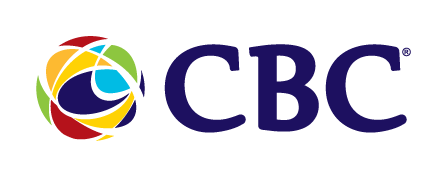‘); } else { $(“.fotorama-caption”).addClass(“remove_caption”); } }) .fotorama();
Leader of Government Business in the Senate, Senator Kamina Johnson Smith, has suggested that Jamaica had not faced any external pressure to make room for a mutual exchange of information on tax evasion and avoidance with a wider global community.
She was speaking during Friday’s Senate debate on the new Revenue Administration (Amendment) Act, which seeks to expand Jamaica’s taxation information policy beyond the United States’ Foreign Account Tax Compliance Act (FATCA) to include over 140 other countries cooperating through the wider Convention on Mutual Administrative Assistance in Tax Matters (MAAT) which has been approved by the local Parliament.
The Bill seeks to amend the substantive legislation to implement the Convention on Mutual Administrative Assistance in Tax Matters to improve international tax compliance, by enabling the exchange of financial and other tax information among state parties to the convention.
The Bill also seeks to ensure that the Standard for Automatic Exchange of Financial Account Information in Tax Matters, developed by the Organisation for Economic Co-operation and Development (OECD), to create a single platform for the administration of the automatic exchange of tax information under the convention.
The Bill, which was piloted through the House of Representatives two weeks ago by Finance and the Public Service Minister Dr Nigel Clarke, aims at countering tax avoidance and evasion at the international level, both bilaterally and multilaterally, through cooperation between the signatory states for the exchange of financial and other information needed for tax purposes.
Johnson Smith, who is also Jamaica’s minister of foreign affairs and foreign trade, told the Senate debate that the amendments were intended to increase transparency, ensuring that Jamaica remains a safe place to do business, in keeping with global standards.
“This is, of course, consistent with Vision 2030 for Jamaica and will certainly aid our efforts to achieve the United Nations Sustainable Development Goals,” she noted.
She said that the exchange of information between revenue authorities had been a longstanding part of the legal and domestic landscape in Jamaica. It forms the basis of an article in the country’s double taxation agreement, as well as the subject of “stand alone” bilateral tax information exchange agreements.
However, she explained that, in the aftermath of the global financial crisis, the political momentum, with respect to international tax matters, had shifted towards the opportunity provided by the automatic exchange of information and as such, in September 2013, the G20 finance ministers and central bank governors determined that the automatic exchange of information was the new “globally accepted standard”.
Senator Johnson Smith recalled that FATCA, which requires certain US taxpayers holding financial assets outside the country to report those assets to the Internal Revenue Service (IRS), was approved in 2013, and introduced to Jamaica in 2015, providing for the reciprocal automatic exchange of banking information between Jamaica and the US.
However, by 2014, more than 104 jurisdictions had committed to swiftly implementing a multilateral automatic exchange information convention on Mutual Administrative Assistance in Tax Matters, which was developed jointly by the OECD and the Council of Europe in 1988, and amended by Protocol in 2010. The convention is the most comprehensive multilateral instrument available for all forms of tax cooperation, to tackle tax evasion and avoidance.
Senator Johnson Smith introduced the MAAT as a multilateral convention, designed as an instrument of international law to facilitate all forms of administrative cooperation, and containing strict rules of confidentiality and proper use of information, as well as permitting a dedicated automatic exchange of information.
“One of its main advantages lies in its global reach with 141 signatories as of September 2020,” the Senate leader noted, pointing out that Jamaica has been involved with MAAT since in 2016, which was ratified in 2018 and enforced in March, 2018.
She said that over the last couple of years, several other Caribbean countries had signed on to the convention, including Barbados, and Trinidad and Tobago, and updated their domestic legislation and operational lines for the automatic exchange of information under the MAAT, using the Common Reporting Standard (CRS) platform.
“We appreciate that while these other countries may have faced external pressures to do so, Jamaica was not seen, and has not been seen as a harmful jurisdiction by the international tax committee and has, in fact, been a role model, and an example in the region in respect of our compliance with the global standard,” she stated.
“In that context, we weren’t previously required to commit to starting an automatic exchange of information, but as we seek to maintain high standards in tax compliance, and our global standing in this regard, we are now proceeding to the next level of legislative strength,” she told the Senate.
Now you can read the Jamaica Observer ePaper anytime, anywhere. The Jamaica Observer ePaper is available to you at home or at work, and is the same edition as the printed copy available at http://bit.ly/epaper-login







